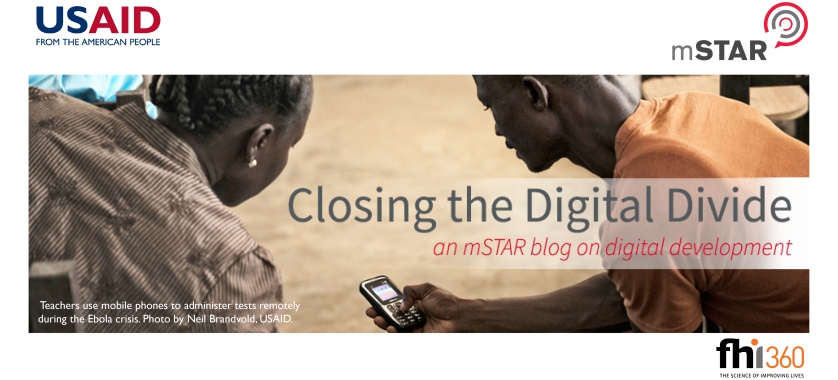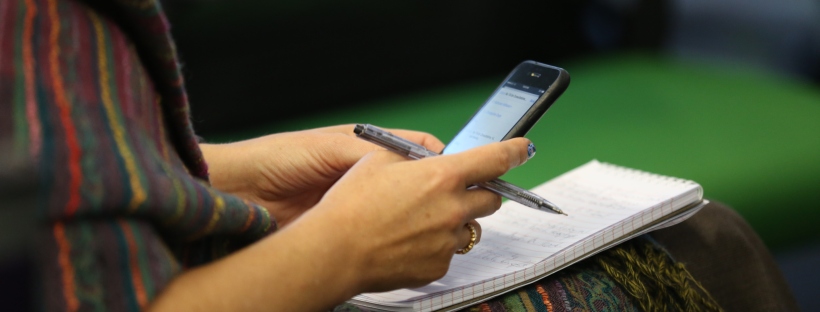As mSTAR’s project in Bangladesh comes to a close this fall, mSTAR/Bangladesh staff write on their perspectives from four years of a successful project, where mSTAR/Bangladesh helped enroll over 24,000 individuals—most of whom are women—into digital financial service accounts and helped USAID IPs and beneficiaries transact around $1.83 million digitally. The activity brought two new financial products to market with Bank Asia and IFIC Bank, including micro-credit to farmers with lower interest rates and more favorable repayment terms than any other alternative on the market today. Through this effort, mSTAR/Bangladesh facilitated loan disbursement to 795 farmers. Both banks are interested in scaling up these efforts.
By Tasnuba Sinha, mSTAR/Bangladesh Digital Financial Services Associate
In a world where we want to make an impact across borders, cultures, viewpoints and motivations, dialogues such as stakeholders’ meetings, conferences, formal network gatherings and seminars play an integral role. Dialogues like these allow for networking and relationship building, for role models to inspire next generation change makers, and for the exchange of experiences.
mSTAR/Bangladesh recognizes the potential and the importance of dialogue facilitation and has organized 11 dialogue facilitation programs in Bangladesh over the past four years. I have been fortunate enough to be a part of mSTAR/Bangladesh and have organized numerous events over the past 11 months including Mobile Money Consultative Group meetings, a Financial Inclusion Week Event and an Agricultural Value Chain Insights: Opportunities in Bangladesh report launching event.
In the last few years, our team at mSTAR/Bangladesh has built a strong local and international network of representatives from development organizations, donor agencies, digital financial services (DFS) providers, mobile network operators, technology solution providers, insurance companies and regulatory bodies – people who are doers and makers, who believe what we believe: that Bangladesh has all the potential in the world. Without this community, our work in supporting acceleration and adoption of digital payments would not be possible.
The first Mobile Money Consultative Group (MMCG) meeting was first held in August 2014 and ever since then, it has successfully created a community of passionate individuals who believe in the benefits of using digital financial services and ultimately building an inclusive digital ecosystem where all segments of society have access to formal financial services, particularly those at the bottom of the pyramid. MMCG provided a platform for change makers to come together and discuss challenges and innovative solutions. Held quarterly, the MMCG has been covering various issues from the importance of financial literacy to the need for innovation in mobile financial services products. Furthermore, several digital financial service providers have expressed many times during the meetings that they see all the challenges as an opportunity for them to develop their products in such a way that the challenges can be eliminated. Most importantly, our team believes in promoting collaboration, trust and community – the tenets of a strong digital financial ecosystem and after successfully conducting nine MMCG meetings, we can say that is what we have attained.
Another major event that mSTAR/Bangladesh (mSTAR/B) has hosted that I am particularly proud of is the Financial Inclusion Week event in October 2016. Aligning with the global theme ‘Keeping Clients First in a Digital World,’ mSTAR/B hosed an event entitled ‘Increasing the Uptake of Formal Financial Services through a Client-Centric Approach.’ The event successfully explored how different actors, from development organizations, to financial service providers, to government programs, have supported the development, promotion and uptake of digital financial services in Bangladesh. mSTAR/B was one of the very few organizations who took part in this global conversation. The modality of the workshop was designed in such a way that it provided the participants to perform a lively, interactive discussion where they explored scenarios reflecting existing needs, barriers to accessing formal financial services in Bangladesh and the actions and steps required to further accelerate financial inclusion.
The core purpose behind hosting any dialogue facilitation is to help people connect. Dialogues give organizations opportunities to see what other people are working on and understand challenges, and the need to develop new innovative products that would benefit all segments of the population. For us, that was the main objective. We aimed to provide such platforms that would help a development organization connect with a DFS provider or other development organization and inspire individuals to think of building the ecosystem through collaboration.
Tasnuba Sinha has been with mSTAR/Bangladesh since August 2016. During that time, she organized five events promoting dialogue facilitation. She has always been passionate about working in the development sector and graduated with a degree in Economics. Prior to mSTAR/Bangladesh, Tasnuba worked at a tech startup in Bangladesh.


